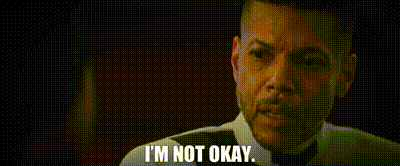10th October is World Mental Health Day 2022, with a theme this year of making mental health your number one priority. Specifically this year, it’s about taking back control: recognising what you can change (and acknowledging what you can’t). With that in mind, I wanted to broadly share the story of my own mental health journey during the past decade.
The ghosts of the past
In 2016, in a post which remains one of my most-read and best-received, I summoned the courage to write a LinkedIn post titled The battle with yourself in support of Geek Mental Help Week. While the events associated with it are now firmly in the past, it contains some important train-of-thought wondering which still lives with me today:
Have I recovered? I don’t know. I still can’t comprehend exactly what I was suffering from, or how to measure my rate of improvement. Some of it I might never fully recover from. But I’ve learned important lessons about what matters to me; an acceptance of who I am; and an understanding of what I’ve been through.
For me, the more I spoke about these issues, the easier it became, and the more I began to understand what I’d been through. When you’re put in a position of constructing a narrative around personal events, your brain becomes more finely attuned to helping you make sense of it. Hence I appeared on a couple of podcasts around the same time (back in an era before I was a podcaster myself), so if you’d like to hear “Neil from six years ago” talking about these challenges, here are a couple of places to listen:
- Let’s Talk About Tests, Baby - Episode #62: Banishing the permanently exhausted pigeon (October 2016)
- Inner Pod - Episode #8: Neil on talking (May 2017)
The echoes of today
For me, things are… different today. Better? Probably. But I’m still adjusting to some major upheaval in my life during the past couple of years; namely, becoming a dad (and losing my own dad) during a global pandemic. In its wake there are new doubts and difficulties, most of which I’m struggling to put a label on. But I can recognise the echoes of what I went through all of those years ago, and where I failed to seek help when I needed it most.
While I want to do things differently this time, it’s still not easy. For more than six months, I’ve had a card on my Trello board titled “Find somebody to talk to”; a shorthand for exploring options around therapy or counselling. I’m having my first introductory therapy session today, courtesy of Self Space; I’m not sure what I’ll learn from it (there are a lot of avenues to explore) but I already know that I’m going to find it valuable and personally beneficial.
I’m here to talk
After my first brush with recognising my own mental health needs, I took it upon myself to become a trained Mental Health First Aider. While the qualification won’t make you a qualified medical professional, it seeks to do for mental health what physical first aid does in an emergency: allow you to recognise the signs of distress/danger, gives you the tools to support people who need help, and helps you to spot the signs of when further intervention is necessary.
It’s a useful toolkit to help me recognise symptoms within myself too, but it doesn’t make me immune: there are still many situations where speaking in confidence with another person is the most beneficial approach. And for that reason, it’s a service that I’m happy to offer to anybody else. Regardless of whether we’re already in discussions regarding my other services, if you have an immediate need to talk to somebody, please contact me and I’ll make myself available, free of charge, at the earliest opportunity.
Key takeaways 📝
- Speaking about your problems is an important first step.
- When you share, it makes your problems easier to understand.
- I am here to help - please contact me in confidence.

